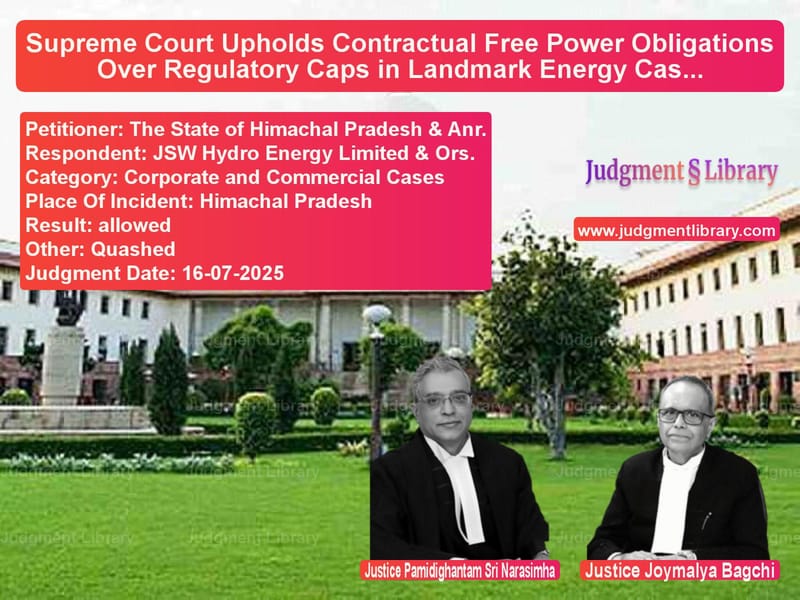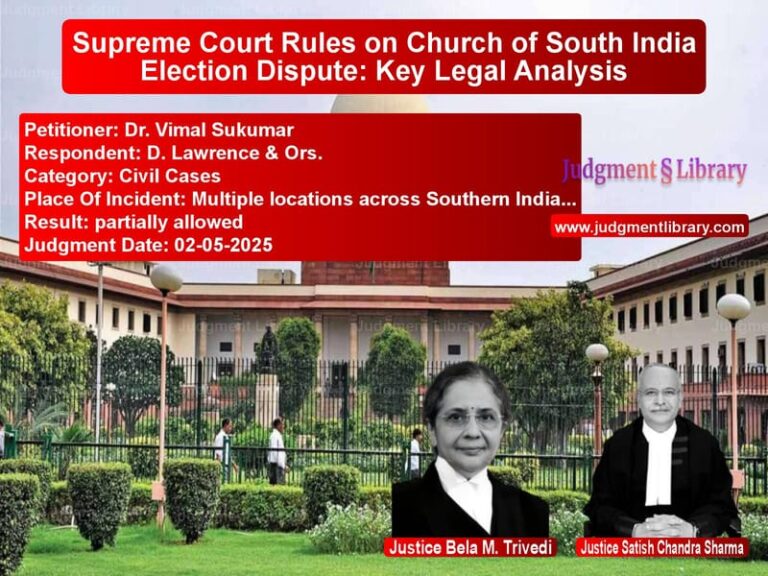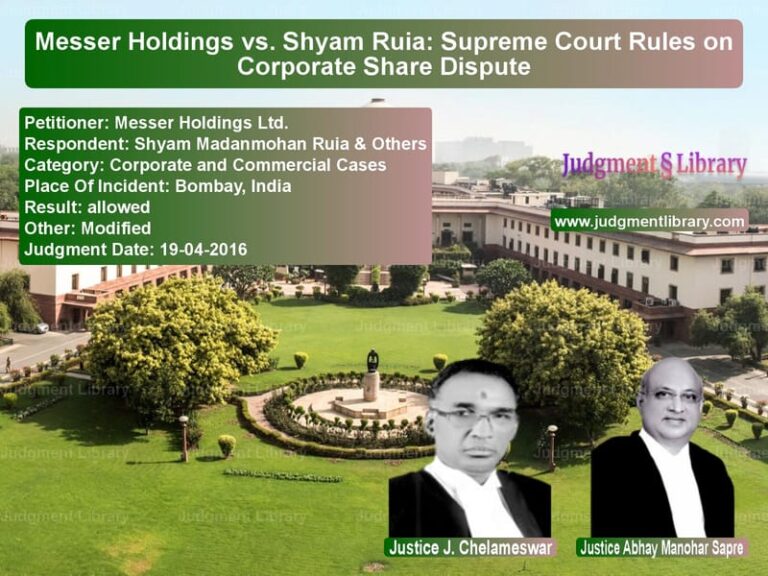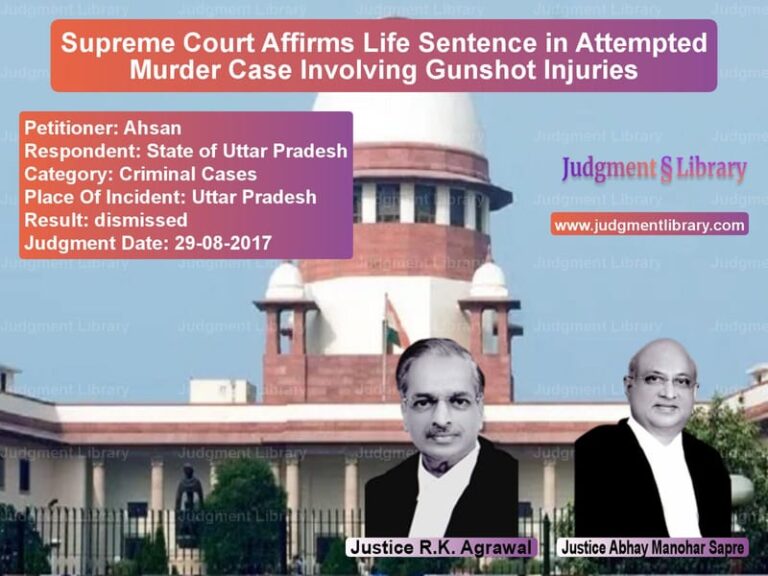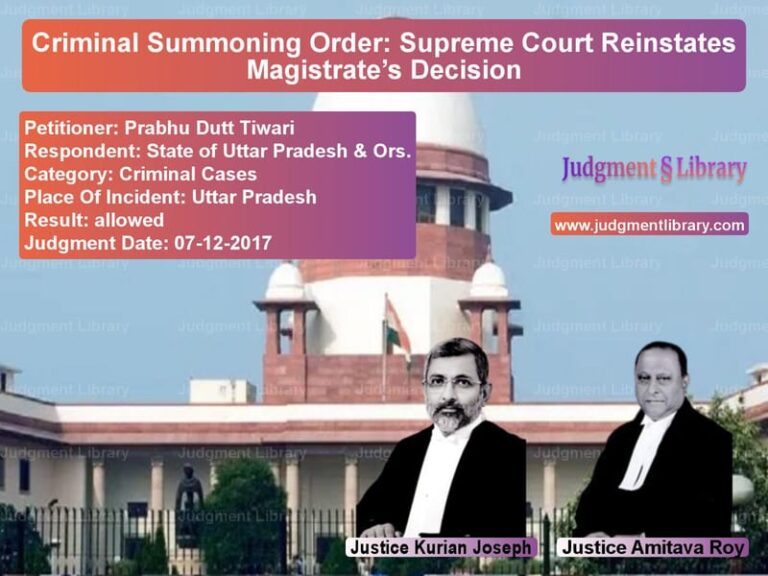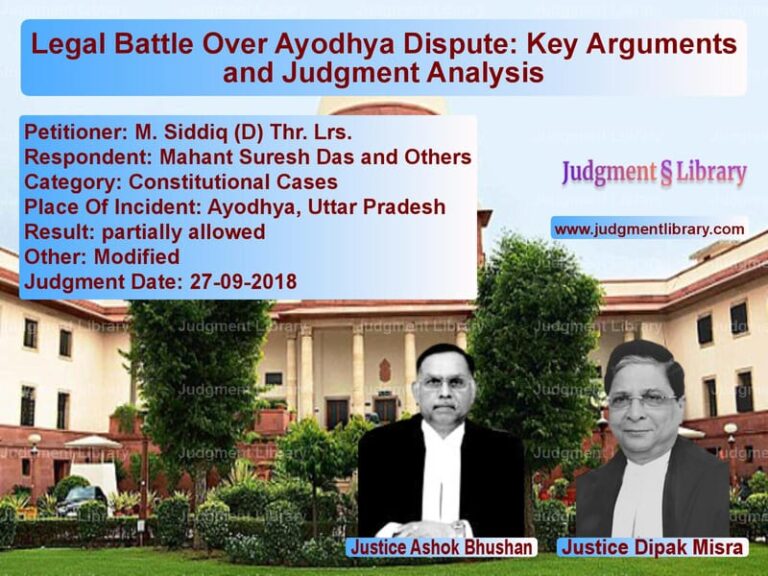Supreme Court Upholds Contractual Free Power Obligations Over Regulatory Caps in Landmark Energy Case
In a significant judgment that clarifies the relationship between contractual obligations and regulatory frameworks in the energy sector, the Supreme Court has ruled that power generation companies cannot use regulatory caps to escape their contractual commitments to state governments. The case involved JSW Hydro Energy Limited’s attempt to reduce its free power supply obligations to the Himachal Pradesh government from 18% to 13% by relying on Central Electricity Regulatory Commission (CERC) regulations.
The dispute centered around a 1045MW hydroelectric power project that had been operating under an Implementation Agreement requiring the company to supply 18% of net generation free of cost to the state government. When CERC regulations introduced a 13% cap on free power for tariff calculation purposes, JSW Hydro sought to modify its contractual obligations, leading to a legal battle that reached the Supreme Court.
The Contractual Framework and Dispute
The legal journey began with a Memorandum of Understanding in 1993, followed by an Implementation Agreement that clearly stipulated JSW Hydro’s obligation to supply 12% of net generation free of cost for the first 12 years from commercial operation date, and 18% for the next 28 years. This agreement was part of the consideration for the state government granting various permissions, acquiring land, and providing other support for the project.
When CERC introduced its 2019 regulations containing Note 3 of Regulation 55, which stated that “FEHS = Free energy for home State, in percent and shall be taken as 13% or actual whichever is less,” JSW Hydro saw an opportunity to reduce its contractual obligations. The company argued that this regulatory cap overrode its contractual commitments.
The State Government’s Arguments
Represented by senior counsel Mr. Kapil Sibal and Mr. Parag Tripathi, the Himachal Pradesh government presented compelling arguments defending the sanctity of contracts. They contended that the quantum of free power to be supplied under the Implementation Agreement is not regulated or curtailed by the CERC Regulations, 2019 or the CERC’s order dated 17.03.2022.
The state government’s legal team emphasized that the purport of Note 3 of Regulation 55, which stipulates the 13% cap on free power, is for calculating the bill amount that the generating company can recover from beneficiaries. It does not prohibit respondent no. 1 from supplying free power beyond this cap. They further argued that the Regulations govern agreements between the generation and distribution companies but do not extend to the Implementation Agreement, which was executed even prior to the commencement of generation.
Mr. Sibal strongly disputed JSW’s characterization of the state government as a deemed licensee, arguing that there is no transmission, distribution, or trading of electricity in this case. He pointed out that the State Government is not purchasing any power as it is supplied free of cost.
JSW Hydro’s Position
Represented by Mr. P. Chidambaram and Dr. A.M. Singhvi, JSW Hydro argued that the CERC regulations should prevail over contractual arrangements. Mr. Chidambaram contended that the Implementation Agreement, which was negotiated prior to the CERC Regulations, 2019 stands overridden by the Regulations.
The company’s legal team referenced Article 9 of the Implementation Agreement, which states that rights and obligations are subject to “Law,” defined as including regulations. They argued that the State Government is a regulated entity under the Electricity Act as it is a deemed licensee as per the third proviso of Section 14.
Dr. Singhvi supplemented these arguments by emphasizing that the consequence of a change in law (i.e., the cap on free power supply) must be borne by both parties, and cannot be unilaterally imposed on the generating company. He also argued that since this is a composite scheme for generation and distribution of electricity, there can be no mismatch on the quantum of free power.
CERC’s Stance
Mr. Nikhil Nayyar, representing CERC, provided crucial clarity on the regulator’s position. He submitted that the CERC Regulations, 2019 are only concerned with tariff fixation and neither deal with the Implementation Agreement nor impose restrictions on the quantum of free power supply to the appellant-State.
The CERC counsel explained that the purport of the Regulations is to cap the free power that will be considered while fixing tariff and whose costs can be passed onto the distribution companies and consumers. Since the actual quantum of free power supply is determined by contract, respondent no. 1 must use contractual remedies to challenge the same.
The Court’s Legal Analysis
The Supreme Court conducted a thorough examination of the Electricity Act, 2003, describing it as a complete and comprehensive code for regulating the generation, transmission, distribution, trading and use of electricity. The Court emphasized the specialized nature of electricity regulation, noting that postmodern legislation institutionalizes governance through regulation.
On the crucial question of whether CERC regulations override contractual obligations, the Court made several key determinations. The judgment stated that a regulation made by the CERC in exercise of its powers under Section 178 of the Act will override existing contracts between regulated entities. However, the Court needed to determine whether this principle applied to the specific relationship between JSW Hydro and the Himachal Pradesh government.
The Court characterized the free power obligation as a form of ‘royalty’ payable to the State as compensation, in lieu of being allowed to utilise river water, which is a public and commons resource, for undertaking its commercial activity of power generation from which it derives benefits through sale of power.
Interpretation of the 13% Cap
The Court’s central finding concerned the proper interpretation of Note 3 of Regulation 55. The judgment clearly stated that the purpose and amendment of Note 3 of Regulation 55 is for the State Commission to determine tariff by assuming that FEHS is 13%, whenever it is higher in actuality, while calculating the energy and capacity charges.
The Court emphasized that neither the language of Note 3 nor the context in which it appears in the CERC Regulations, 2019 supports respondent no. 1’s contention that the legal effect of this cap is to override its contractual obligations with the appellant-State. Rather, use of the term ‘shall be taken as 13% or actual, whichever is less’ shows that the Regulations cover a situation where the obligation to supply free power is higher than 13%, and in such an eventuality, allow only a certain portion of free supply to be considered for tariff determination.
This interpretation led the Court to conclude that once the Regulation does not prohibit the supply of free power beyond 13%, respondent no. 1 cannot rely on it to wriggle out of its contractual obligations.
Maintainability of the Writ Petition
The Court also addressed the procedural aspect of whether JSW Hydro should have approached the High Court through a writ petition. The judgment emphasized the specialized nature of electricity regulation, stating that since tariff determination, including the power to make regulations for this purpose, has been entrusted to a specialised and expert regulator constituted under the statute itself, it would not be proper for constitutional courts to interfere and assume these functions.
The Court noted that constitutional courts must enable the regulator to comprehensively regulate all aspects of the sector such that remedies are not fragmented and certain issues are not left outside the regulator’s domain. Given that the Electricity Act itself provides the appellate mechanisms by establishing a specialised and permanent tribunal, namely the APTEL, and an appeal before this Court, against the CERC’s orders, the High Court should not have entertained the writ petition.
Court’s Final Ruling
In its conclusive findings, the Supreme Court set aside the High Court’s judgment and restored the contractual arrangement. The Court held that CERC Regulations, 2019 do not prohibit respondent no. 1 from supplying free power beyond 13% to the appellant-State, and the Implementation Agreement does not stand overridden by the operation of these Regulations.
The judgment also firmly established that a writ petition before the High Court for aligning the Implementation Agreement with the CERC Regulations, 2019 and the CERC’s order dated 17.03.2022 is not maintainable.
This landmark judgment reinforces the sanctity of contracts while clarifying the limited scope of regulatory interventions. It establishes that regulatory caps designed for tariff calculation purposes cannot be used to escape voluntarily undertaken contractual obligations, particularly when those obligations form part of the consideration for valuable natural resource rights and government support.
Petitioner Name: The State of Himachal Pradesh & Anr..Respondent Name: JSW Hydro Energy Limited & Ors..Judgment By: Justice Pamidighantam Sri Narasimha, Justice Joymalya Bagchi.Place Of Incident: Himachal Pradesh.Judgment Date: 16-07-2025.Result: allowed.
Don’t miss out on the full details! Download the complete judgment in PDF format below and gain valuable insights instantly!
Download Judgment: the-state-of-himacha-vs-jsw-hydro-energy-lim-supreme-court-of-india-judgment-dated-16-07-2025.pdf
Directly Download Judgment: Directly download this Judgment
See all petitions in Contract Disputes
See all petitions in Corporate Governance
See all petitions in unfair trade practices
See all petitions in Company Law
See all petitions in Judgment by P.S. Narasimha
See all petitions in Judgment by Joymalya Bagchi
See all petitions in allowed
See all petitions in Quashed
See all petitions in supreme court of India judgments July 2025
See all petitions in 2025 judgments
See all posts in Corporate and Commercial Cases Category
See all allowed petitions in Corporate and Commercial Cases Category
See all Dismissed petitions in Corporate and Commercial Cases Category
See all partially allowed petitions in Corporate and Commercial Cases Category

